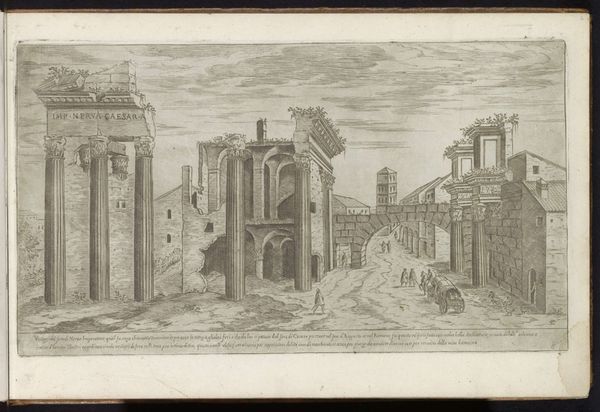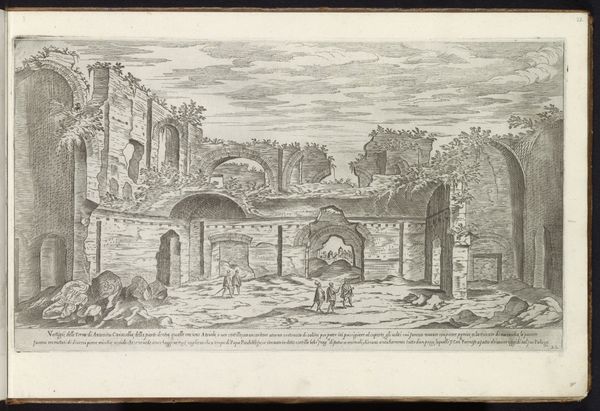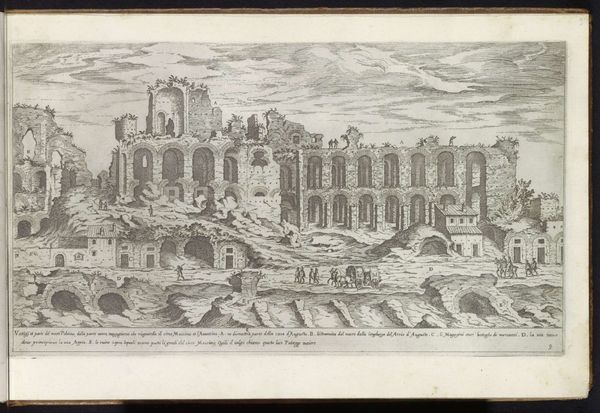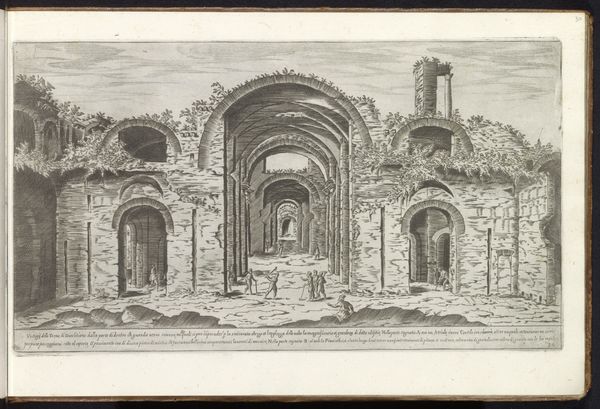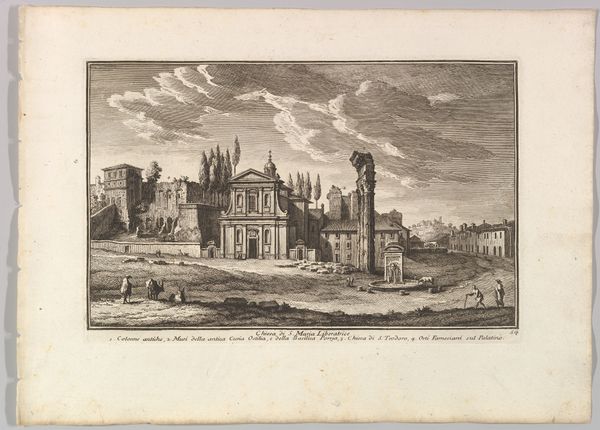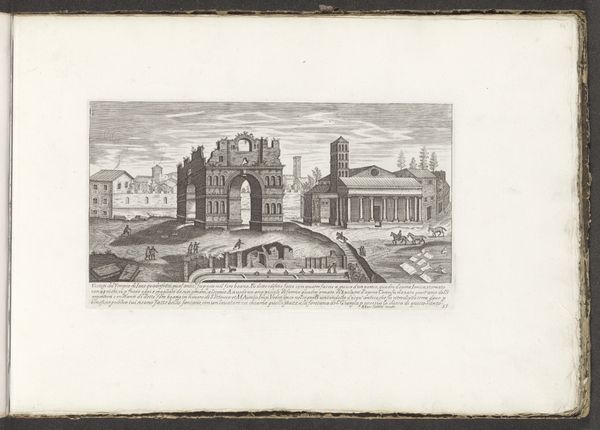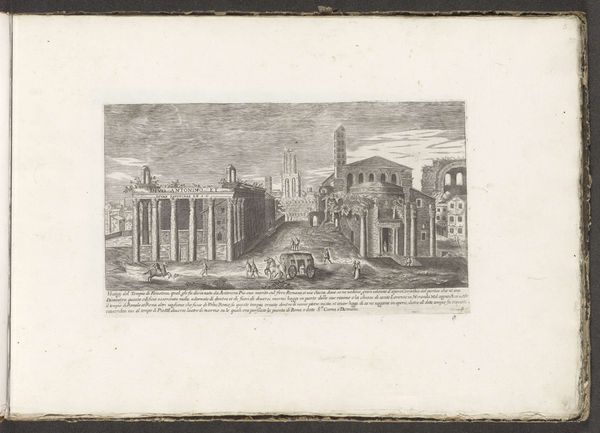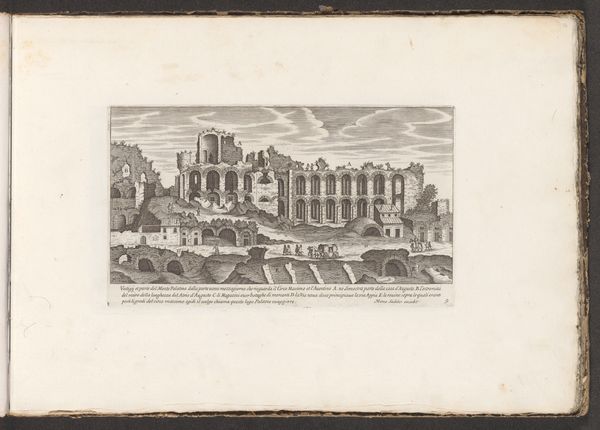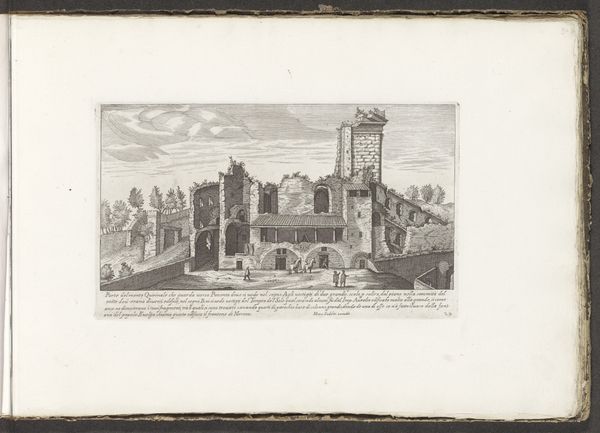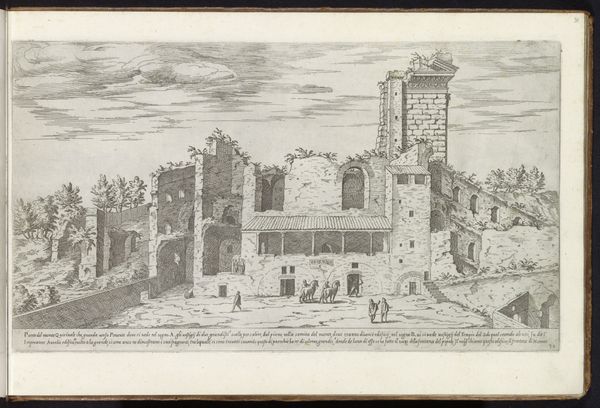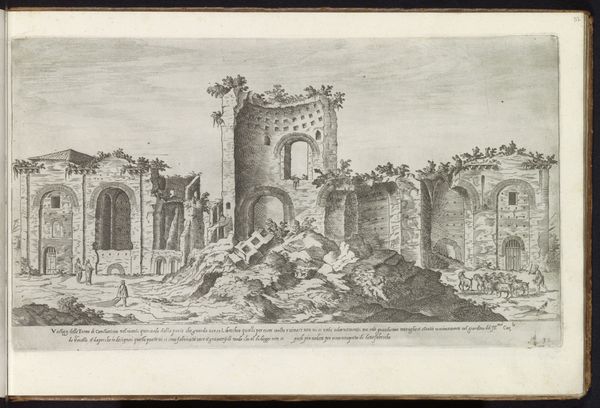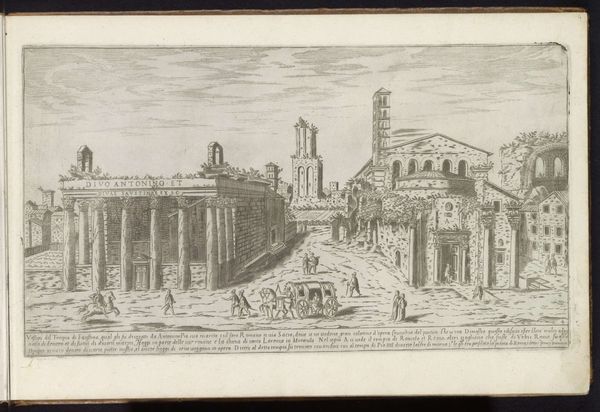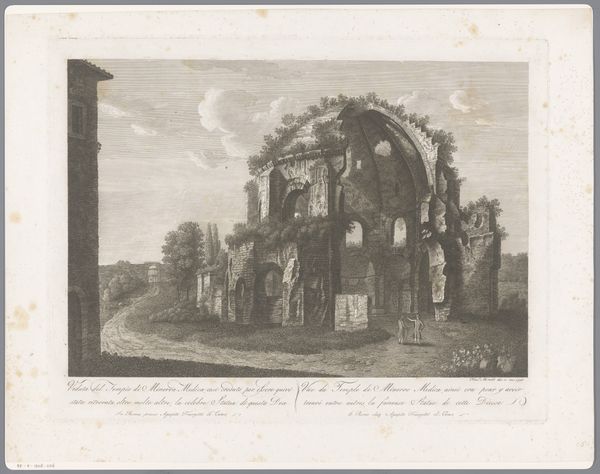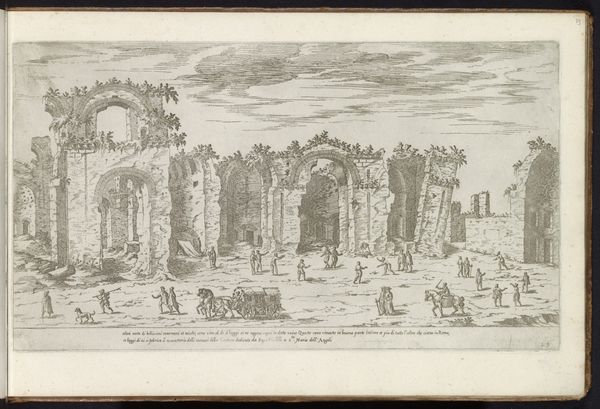
print, engraving
# print
#
landscape
#
cityscape
#
italian-renaissance
#
engraving
Dimensions: height 214 mm, width 381 mm
Copyright: Rijks Museum: Open Domain
Étienne Dupérac made this print of the Arch of Janus in Rome using etching, a printmaking technique that democratized image-making in the Renaissance. The relatively simple process involves coating a metal plate with wax, scratching an image into it, and then bathing the plate in acid, which bites away the exposed lines. Ink is then applied to the plate and transferred to paper, creating multiple impressions. Dupérac’s delicate lines capture the Arch’s ruined state and the excavation work underway. The print not only documents architecture, but also speaks to the labor involved in unearthing the past, and its transformation from a once-glorious monument into a site of industry. This reminds us that images are made by processes too, and carry their own social and economic histories. By focusing on the material and making of this print, we recognize how it challenges traditional distinctions between art and craft, shedding light on the cultural and historical context in which it was created.
Comments
No comments
Be the first to comment and join the conversation on the ultimate creative platform.
